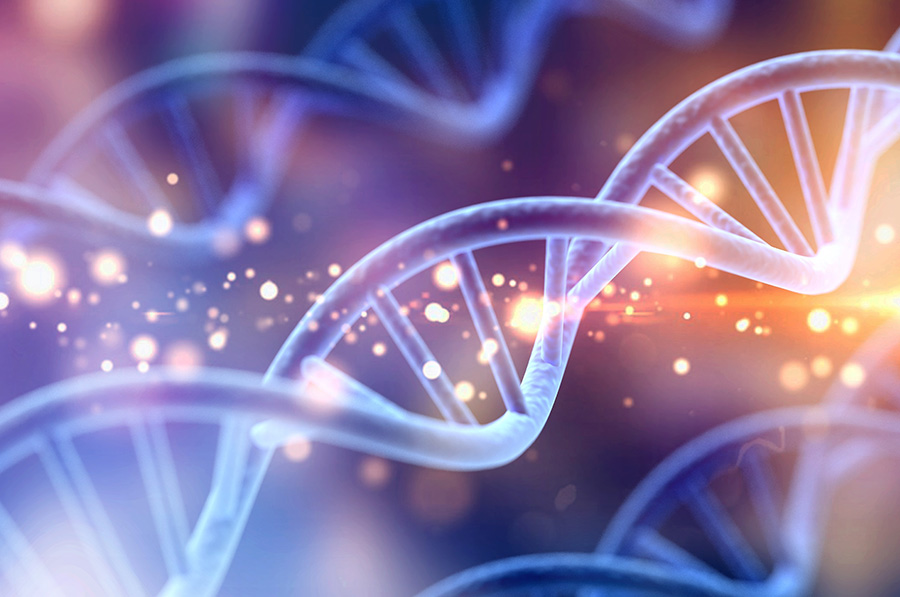
Ancient Ayurveda Recipes for Healthy Living
by Vanita Dahia What did our ancestors eat? One ancient

by Vanita Dahia
There are certain genes that have the potential to impact how we perceive and desire particular foods, and influence our eating behaviours, such as excessive snacking and difficulty feeling full.
For example, variants in the ANKK1 and DRD2 genes, which result in a reduced density of dopamine receptors in your brain, have been associated with eating and addictive behaviours. This type of information, generated from testing genetic markers in a number of genes can be used to understand how to modify your lifestyle and behaviours for optimum wellness.
Many have undergone so many diets, attended exercise boot camps with limited benefits.
If you are having trouble shedding excess weight, consider identifying underlying causes:
1. Diet – often we are acclimatised to eat certain foods and maintain a specific quantity. Many great diets are available on various apps.
Diets worth considering are:
a. Intermittent fasting allows for consummation of food for 6 hours out of a 24-hour period
b. 5:2 diet allows for restricted calorie consumption for 2 days per week
c. Condition associated diets like an anti-inflammatory diet, diabetic diet, blood pressure diet
d. specialised diets for specific pathologies like a bi-phasic diet for SIBO, low histamine diet for histamine excess, GAPS diet for GI disturbances
e. food group diet allowing for calculating content of food groups like a blood type, zone diet, paleo, Atkins
2. Food allergies, intolerances and sensitivities may contribute to inflammation and subsequent weight gain. Assess these food allergies with Immunoglobulin testing or ALCAT testing.
3. Gastro-intestinal dysfunction
Healthy weight has the potential to fluctuate if the microbial ecology is out of balance. If there is an imbalance if the good and bad bugs also known as symbionts and pathobionts, immunity of the gut lining become impaired and may manifest as infections, IBS, leaky gut or chronic inflammatory conditions.
Consider assessing gut inflammation, digestion, infections, and the balance of the probiotics with a complete microbiome mapping stool test
4. Insulin sensitivity
The fluctuations in sugar levels play a key role in insulin spikes especially if the stress levels are high. Adrenal depletion and stress alters mood which in turn triggers a depletion in Insulin levels sending signals to the brain to “need the sugar fix”! This is called reactive hypoglycaemia fluctuating with mood changes.
As insulin spikes, so does serotonin. If you’re feeling sad, Serotonin levels decline which in turn depletes Insulin. Consider assessment of a pre-diabetic marker HbA1C, fasting insulin, fasting glucose and the HOMA score.
5. Estrogen Dominance
As man and woman ages, estrogen levels tend to rise leading to what we know as menopause and andropause- the belly fat pad at mid-life! Estrogen, although protective, not only increases weight, but also stimulates the ageing process by decreasing muscle tone, age the skin, etc. This is one of many mechanisms of weight gain particularly with increasing age.
Consider assessment of hormonal status with a saliva, urine or blood test.
There are of course many underlying causes of weight gain. Consider assessment of genetic variants associated with appetite regulatory hormones in the brain to reveal:
⦁ Why weight gain runs in the family
⦁ What diet to use – match your diet type
⦁ Which exercise – is endurance training ideal for you?
⦁ Your metabolism – lipid metabolism plays a direct role in metabolic health
⦁ Risk factors associated with health conditions like diabetes, arthritis, thrombosis
⦁ Nutritional needs – which nutrients and vitamins are needed
⦁ Medication response – what is your sensitivity or reactivity to prescription medications
Healthy Weight DNA genetic testing is a simple buccal swab (saliva swab from inside of the mouth) collection. The result is a comprehensive easy to follow report on selected genetic markers which represent the best and most recent genetic research in diet, nutrition, exercise, weight-related health conditions and medication response.
Request a sample report of Healthy Weight DNA genetics or talk to us about assessment and treatment options tailored for you. Contact us if you’d like to order a Healthy Weight DNA genetics test or find out more on genetics and weight.
Resource
Healthy weight DNA Profile Sample Report
Contact us or test for your healthy weight genes.
References:
1. Epstein LH et al. Food Reinforcement, The Dopamine D2 Receptor Genotype, And Energy Intake in Obese And Nonobese Humans. Behavioral Neuroscience 121, 877-86 (2007).
2. Doehring A et al. Genetic Diagnostics Of Functional Variants Of The Human Dopamine D2 Receptor Gene. Psychiatric Genetics 19, 259-68 (2009).

by Vanita Dahia What did our ancestors eat? One ancient

Have you ever heard of anyone preventing their memory decline

How to Stop Indigestion and Acid Reflux by Vanita Dahia

Copyright © Vanita Dahia 2026. All rights reserved.